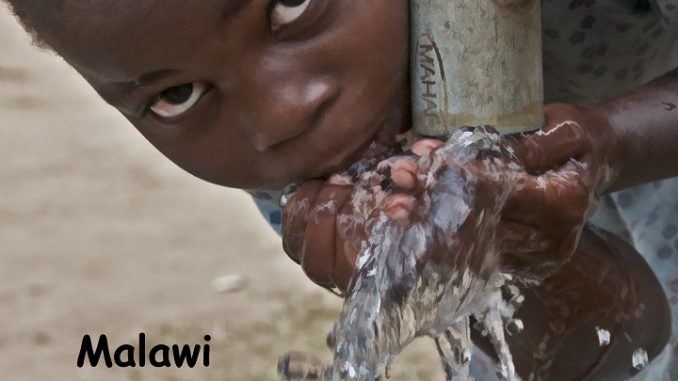

Richard McGowan, Executive Director of Emmanuel International Canada (EIC), states, “One of the greatest causes of poverty in our world is also the most overlooked – the lack of access to clean drinking water.” It doesn’t have to be this way!
Nearly one billion people do not have access to clean, safe water – that’s the equivalent of 1 in 8 people on the planet!
For these people, poverty is a fact of life.
The lack of water is an often insurmountable obstacle. You can’t grow food, you can’t build housing, you can’t stay healthy, you can’t stay in school and you can’t keep working.
Without clean water, the possibility of breaking out of the cycle of poverty is incredibly slim.
With unclean water sources often miles from villages, many of the able bodied members of a community are forced to spend hours each day simply finding and transporting water. The typical container used for water collection in Africa, the jerry can, weighs over 40 pounds when it’s completely full.
Imagine how demanding it would be to carry the equivalent of a 5-year old child for three hours every day. And some women carry even more, up to 70 pounds in a barrel carried on the back. That’s like carrying a baby hippo.
Wasted Time
The United Nations estimates that Sub-Saharan Africa alone loses 40 billion hours per year collecting water; that’s the same as a whole year’s worth of labor by France’s entire workforce! This is incredibly valuable time.
With much of one’s day already consumed by meeting basic needs, there isn’t time for much else. The hours lost to gathering water often prevent them from learning a trade to earn a living. Just think of all the things you would miss if you had to take three hours out of each day to get water.
When a water solution is put into place, sustainable agriculture is possible. Children go back to school instead of collecting dirty water all day or staying home sick from waterborne illnesses. Parents find more time to care for their families, expand minimal farming to sustainable levels, and even run small businesses.
The social and economic effects caused by a lack of clean water are often the highest priorities of African communities when they speak of their own development.
The World Health Organization has shown this in economic terms: for every $1 invested in water and sanitation, there is an economic return of between $3 and $34!
For often less than an average of $1.00 per person, Emmanuel International Canada is able to work with local partners to provide closer access to clean water. Our goal is to bring clean, sustainable water supplies to schools, churches and villagers. By doing so, communities can be freed to begin working themselves out of poverty.
EI Water Projects
Beginning in January of 2014, Emmanuel International (EI) has implemented a Water and Sanitation Project in Malawi. Currently, only 57% of the population in Malawi has improved sanitation facilities. That leaves 43% of the population at high risk of preventable water borne diseases! EI plans to build 3576 new sanitation facilities within the next 3 years.
In the Philippines, EI continues to work on the rebuilding and rehabilitation phases of the disaster plan in response to Typhoon Haiyan. EI is working to drill water wells, provide skills training, and introduce backyard gardening for food security. By focusing on the long term need for clean water, life in the Philippines will improve enormously!
When a well is drilled, it makes sustainable agriculture possible and allows children to go to schools.

Be the first to comment